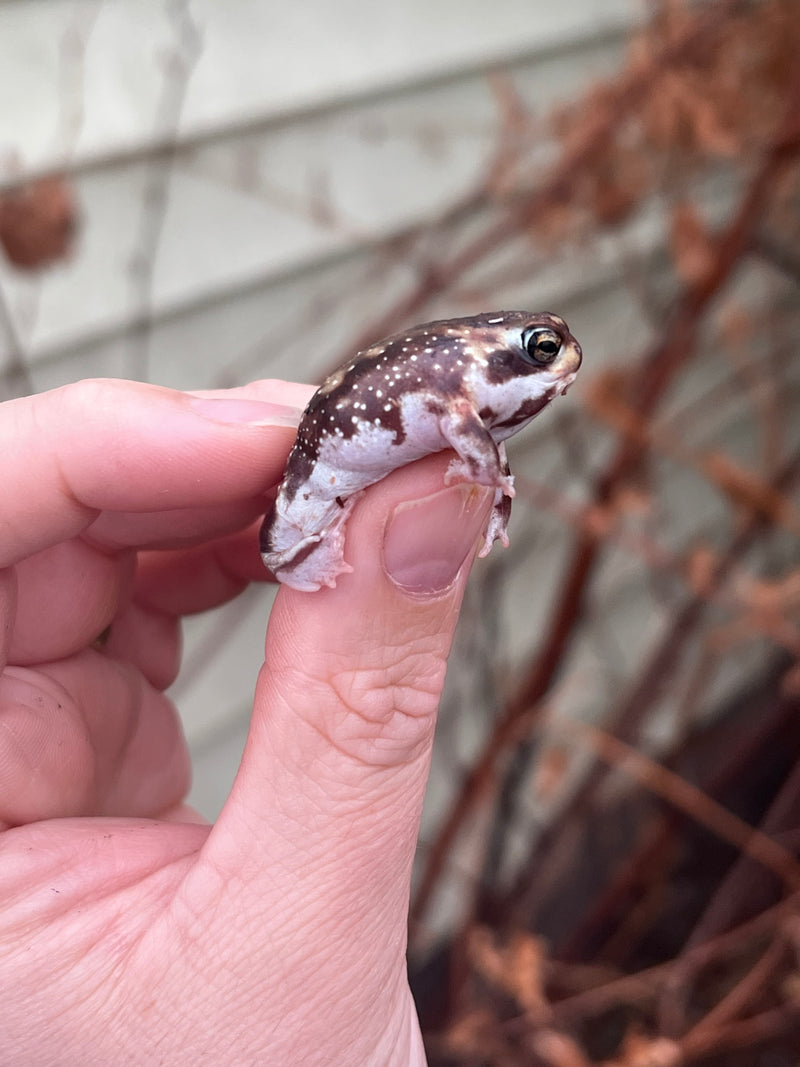Uncover Rare Rain Frog for Sale: Boost Your Amphibian Collection Today!
Uncover Rare Rain Frog for Sale: Boost Your Amphibian Collection Today!
Blog Article
Common Wellness Issues in Reptiles: Signs And Symptoms and Solutions
In the intricate world of reptile care, understanding the common wellness problems that might impact these special animals is extremely important in ensuring their well-being. From breathing infections that can quietly hold to metabolic bone diseases that can debilitate, reptiles are vulnerable to a variety of ailments that require keen monitoring and prompt treatment. Whether it's coming to grips with parasitic infestations, navigating dehydration concerns, or resolving skin disorders that show up in refined methods, being attuned to the symptoms and equipped with the expertise of efficient services is vital for any reptile owner. By diving even more into the subtleties of these health and wellness problems and exploring the sensible solutions readily available, one can secure the health and vigor of these interesting animals.
Breathing Infections
Respiratory infections in reptiles can dramatically impact their general wellness and require timely interest from seasoned veterinarians. These infections are typically triggered by germs, fungis, or infections and can materialize with signs and symptoms such as hissing, nasal discharge, open-mouth breathing, and sleepiness. In reptiles, respiratory system infections can be particularly challenging to diagnose and treat because of their distinct anatomy and physiology. Vets frequently count on a combination of checkups, analysis imaging, and research laboratory tests to properly determine the underlying source of the infection.
Therapy for breathing infections in reptiles generally includes a mix of supportive treatment, such as keeping correct humidity levels and temperature level gradients in the unit, along with targeted medication to address the particular pathogen liable for the infection. It is crucial for reptile owners to monitor their pets very closely for any kind of indications of respiratory system distress and seek veterinary treatment at the earliest indicator of a problem. With prompt intervention and proper treatment, lots of reptiles can recover totally from breathing infections and resume regular activities.

Metabolic Bone Illness
What aspects contribute to the advancement of Metabolic Bone Condition in reptiles?
Metabolic Bone Illness (MBD) in reptiles is mostly caused by a lack of correct calcium, phosphorus, and vitamin D3 degrees in their diet. When reptiles do not get ample calcium, either through their food or appropriate UVB exposure for vitamin D3 synthesis, they are at a high danger of creating MBD. Reptiles with diets low in calcium or unbalanced calcium to phosphorus proportions are particularly vulnerable. In addition, inadequate exposure to UVB light stops reptiles from manufacturing vitamin D3, which is essential for calcium absorption and bone health and wellness.
Various other contributing aspects to MBD consist of inappropriate temperature level slopes within the reptile's environment, leading to decreased metabolic process and impaired calcium absorption. Inadequate humidity levels can also impact a reptile's ability to metabolize calcium efficiently. Moreover, specific reptile types have certain dietary requirements that, if not fulfilled, can raise the possibility of developing MBD. Routine veterinary check-ups, proper husbandry techniques, and a well balanced diet plan are necessary to stop Metabolic Bone Illness in reptiles.
Parasitic Problems
Parasitical infestations posture a substantial health and wellness risk to reptiles, impacting their overall health and needing prompt veterinary focus. Reptiles can be impacted by various bloodsuckers, including termites, ticks, interior worms, and protozoa. These parasites can trigger a series of signs and symptoms, such as weight management, lethargy, skin inflammation, diarrhea, and even fatality if left without treatment.
One common bloodsucker discovered in reptiles is the mite, which can cause skin anemia, anxiety, and inflammation. Ticks are one more exterior parasite that can transfer illness and create pain to the reptile. Internal parasites like worms and protozoa can cause digestive problems, lack of nutrition, and weaken the reptile's immune system.
To detect a parasitical infestation, a veterinarian may do fecal examinations, skin scrapings, or blood go to my blog examinations. Therapy frequently includes deworming medicines, antiparasitic bathrooms, or in extreme instances, hospitalization. Preventative steps such as routine veterinary examinations, appropriate health, and quarantine procedures for new reptiles can assist lessen the threat of parasitical problems and make certain the health of reptile pet dogs.
Dehydration and Hydration Issues
Dehydration in reptiles can substantially affect their health and health, demanding timely treatment and proper hydration administration. If left untreated, dehydration can lead to significant health and wellness issues and also be fatal to the reptile.
To prevent dehydration, reptile proprietors must guarantee that their pets have accessibility to clean water in all times. The water meal should be big enough for the reptile to take in if needed, specifically for types that soak up water with their skin. In addition, preserving proper humidity degrees in the reptile's enclosure and supplying regular bathrooms can aid avoid dehydration.
In situations of dehydration, it is important to seek vet treatment quickly. A vet may provide liquids either by mouth or through shots to rehydrate the reptile. It is important to deal with the underlying cause of dehydration to avoid reappearance and ensure the reptile's total wellness.
Skin Ailments

Conclusion

Breathing infections in reptiles can considerably influence here their total health and call for timely interest from experienced veterinarians (rain frog for sale). Preventative actions such as regular veterinary examinations, proper hygiene, and quarantine treatments for new reptiles can help lessen the threat of parasitic problems and guarantee the well-being of reptile pets
If left without treatment, dehydration can lead to severe health and wellness issues and even be fatal to the reptile.
On a regular basis examining your reptile for any adjustments in skin appearance, look, or shade can help in very early detection and therapy of skin disorders, promoting the overall health and health of your scaly buddy. - rain frog for sale
In conclusion, reptiles are susceptible to various health issues such as breathing infections, metabolic bone disease, parasitic invasions, dehydration, and skin disorders.
Report this page